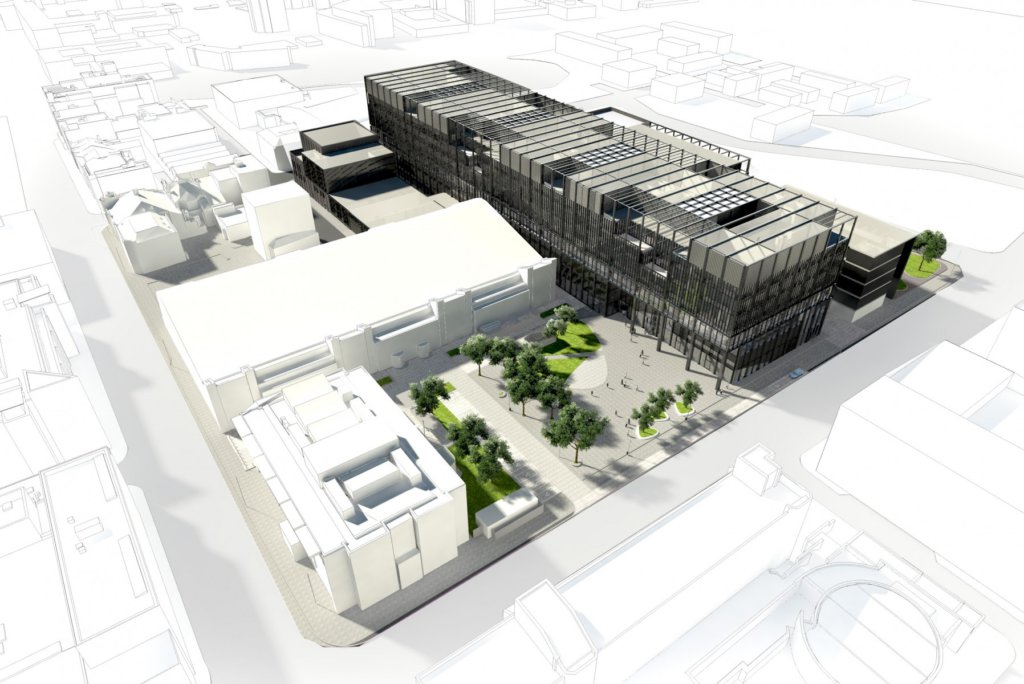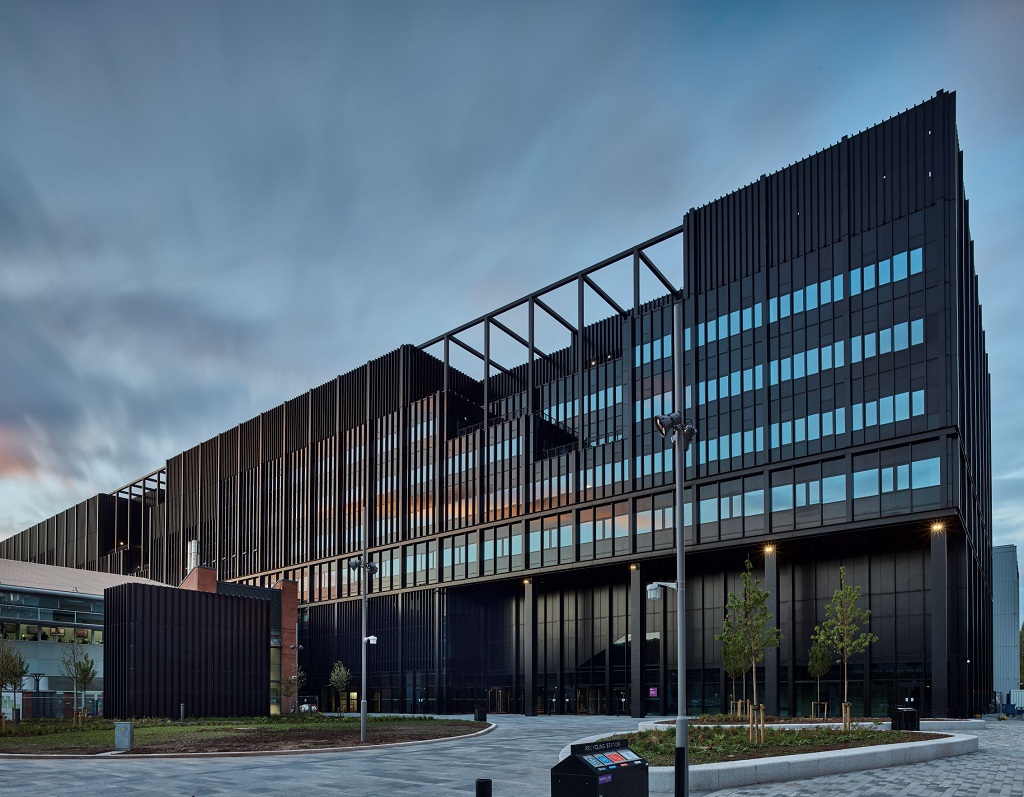Largest concentration of interdisciplinary engineering expertise. Exceptional spaces that inspire future generations of engineers to innovate and discover. Smart facilities for teaching, learning and research. These are the features the Manchester Engineering Campus Development (MECD) is set to provide.
When fully completed, the over 400 million pounds investment is where students, academics and industry partners will come together to study, experience and elevate the field. In this global classroom, Manchester students will be able to collaborate with their peers at other leading institutes around the world. Collisions and further collaborations, innovation and interdisciplinary research will no longer be serendipitous, but encouraged by design.
“MECD affords an exciting new environment for the delivery of interdisciplinary research, teaching and impact across engineering,” shares Professor Martin Schröder, Dean of the Faculty of Science and Engineering. “We are eager to progress towards populating MECD with our staff and students, creating an inspiring, highly flexible first-class teaching and research environment that transforms the way in which the University educates engineers for the future.”
The location
Manchester, the birthplace of the Industrial Revolution, makes a fitting base for one of the most ambitious construction projects in the name of engineering innovation.
From the days of its Roman roots, Manchester has been the home of pioneers. The Bridgewater Canal, Britain’s first artificial waterway, and the world’s first passenger railway between Manchester and Liverpool, powered the cotton-boom wealth of the 1800s.
More specialised types of engineering growth followed: steam engines and locomotives, armaments, machine tools, and, later, those of electrical engineering. This vitality brought about an enormous spillover to its political, cultural, and intellectual life — with the Hallé Orchestra and The Manchester Guardian newspaper wielding international influence, for example.
In 1824, wealthy industrialists, wanting their workers to learn the basic principles of science, founded The Manchester Mechanics’ Institution, which later became the University of Manchester Institute of Science and Technology (UMIST). Since then, it has been a hotbed of numerous revolutionary innovations, such as the world’s first stored-program computer, first steerable radio telescope, first isolation of the wonder material graphene.
This sense of history— glory, grit and more — is instilled in the new eight-floor, over 76,000 m2 (the size of approximately 11 football pitches) campus. With the conclusion of the base build phase, MECD was handed over to the University of Manchester on Friday, 14 May 2021.
“This is a hugely significant milestone for MECD and we are delighted that the initial construction phase is now complete,” enthuses Director of Estates at The University of Manchester Diana Hampson. “MECD will create facilities that will put the university at the forefront of engineering globally, and we are proud to provide such an exceptional space for our exceptional people.”
A place to explore curiosities
Imagine blended lecture theatres that seat up to 200 people, where active participation and collaborative learning happen naturally. Makerspaces to design and tinker to your heart’s content independently, in groups and with trained technicians. Tiered lecture theatres with up to 600 seats for lectures, conferences and important student events such as “Welcome.” Visible teaching workshop and lab spaces to encourage the exchange of ideas and inspiration. Over 1,000 study spaces — focused, informal, vibrant, quiet — catering to various needs and times.
All of the above — and more — aspire to facilitate exciting approaches to teaching and learning. Expect to achieve great things here. Want to challenge existing ideas, create new ideas and lead change? MECD will bring together the people, communities and ideas for it.
Whether through social learning spaces, interactive hubs or high-density wifi, this is a space where students will be able to create, collaborate and connect.
For Danielle George, Professor of Radio Frequency Engineering, it will be a base to reclaim that quality lost to today’s generation of youth: inquisitiveness. As technology around us has advanced so much, it hasn’t allowed us to tinker, to open up an alarm clock or make a transistor radio. She believes this is why the UK has lost some of the innovators, because they’ve lost this curiosity.
“At Manchester, ‘play’ is something that’s encouraged in engineering. We’ve embedded a culture of ‘do engineering anywhere, anytime’,” she explains. “The Manchester Engineering Campus Development is an amazing opportunity to embed engineering in the heart of the campus, where it is so vibrant and alive. Having everyone under one roof will be incredible because there is so much scope for collaboration.”
“For example, in electronics we want to do more with materials and medical scientists, creating wearable tech that can detect the early signs of breast cancer. Engineering has great scope to work with humanities too, in music and social sciences, to be creative and showcase what we’re capable of.”

Source: University of Manchester
World-class research
MECD will be the new home to many outstanding research facilities. Here, world-leading academics will have world-class facilities to spur their world-shaping work.
At MECD, research workspaces come in a huge variety. They include basement areas devoted to heavy duty and vibration isolation laboratories and high voltage facilities, which will be on full public view behind floor-to-ceiling windows looking out onto York Street. Laboratories that adopt a modular approach, with standard furnishings and equipment alongside necessary specialist areas. Electronic research laboratory workspace with sensitive and high-end equipment and intellectual property that will be protected with suitable access control and visual screening.
Researchers will be in the heart of campus close to other key research centres including the National Graphene Institute and the Henry Royce Institute — the UK’s national centre for material science research and innovation.
The result? Academic research which will be inspired, socially progressive and industry-focused.
Experience the future of engineering education at the Manchester Engineering Campus Development.











